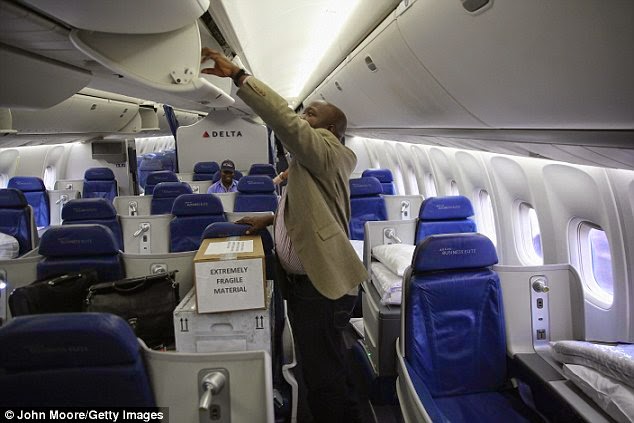Experimental Ebola drug Zmapp arrives in Africa but only TWELVE doses.
Liberia is facing an excruciating choice - deciding which handful of Ebola
patients will receive an experimental drug that could prove either life- saving
or life-threatening. ZMapp, the untested Ebola drug, arrived in the West
African country late yesterday. Liberia's Minister of Foreign Affairs,
Augustine Ngufuan, couriered the two boxes of Zmapp himself on a commercial
flight from the U.S. to Monrovia, where it was unloaded at a VIP terminal.
Assistant health minister Tolbert Nyenswah said three or four people would
begin getting it today. The government has said two doctors will receive the
treatment, but it was unclear who else would. These are the last known doses of
ZMapp left in the world.
The US-based company that
developed it has said it will take months to build up even a modest supply.
West Africa's Ebola virus outbreak has overwhelmed the region's already
strained health systems and sparked an international debate over the ethics of
giving drugs that have not yet been tested for safety or efficacy to the sick.
The charity group Doctors Without Borders, which is running many of the Ebola
treatment centres and whose staff have tussled with whether to provide ZMapp,
said such choices present 'an impossible dilemma'. Now Liberian officials are
facing those questions. The first Liberian patients expected to be given Zmapp
will be Zukunis Ireland and Abraham Borbor, two doctors who caught Ebola virus
while treating patients. 'The criteria of selection is difficult, but it is
going to be done,' said Dr Moses Massaquoi, who helped Liberia obtain the drug
from Mapp Biopharmaceutical. 'We are going to look at how critical people are.
We are definitely going to be focusing on medical staff.' Dr Massaquoi said
people who were past the 'critical phase' and looked likely to survive would
not be treated with it.
The World Health Organisation told Reuters only around 10 to 12 doses of
the drug have been made and this raises difficult ethical questions about who
should get priority access. The worst-ever outbreak of Ebola has already
claimed the lives of 1,069 people and there are 1,975 probable and suspected
cases, the vast majority in Guinea, Liberia and Sierra Leone, according to the
UN health agency. The doctors will be the first Africans to receive the
treatment, though it has already been given to a Spanish priest who later died
and two U.S. aid workers who are reported to have shown signs of recovery.
Authorities are also concerned that ZMapp's unproven status could leave them
open to the charge that humans are being used as guinea pigs. 'This is not the
panacea to the problem. It is at the risk of the patient,' Liberia's Assistant
Health Minister Tolbert Nyenswah told journalists at Monrovia's main airport.
Information Minister Lewis Brown told Reuters the drug merely offered a
'glimmer of hope' and its use was little more than a gamble. Even so, the
clamour for it is strong given that the contagious haemorrhagic disease is
killing more than half of its victims and there is no known cure or vaccine. 'I
welcome it. It is very good. Our nurses are dying. If you bring them the
medication it will make them stronger to fight Ebola,' said stationery seller
James Liburd, in Monrovia. But highlighting the dilemma, Melvin Korkor, the
first Liberian doctor to survive Ebola, said he would not have used ZMapp when
he was fighting for his life because U.S. authorities said they were not
responsible for any adverse effects. 'Any drug that has not been approved by
FDA should not be administered,' he told Reuters. And doctors treating a Sierra
Leonean physician, Dr Sheik Humarr Khan, defended their decision not to give
him the experimental drug, saying today they feared it was too risky. Calling
it 'an impossible dilemma,' Doctors Without Borders explained in detail last
month's decision in response to a New York Times story on the case. It would
have been the first time the experimental drug was tried in humans but at the
time that the experimental treatment was being considered for Dr Khan, his
immune system was already starting to produce antibodies suggesting he might
recover, Doctors Without Borders said in a statement. Dr Khan was also due to
be transferred to a European hospital that would be more capable of handling
problems that might arise, he said.


No comments:
Post a Comment